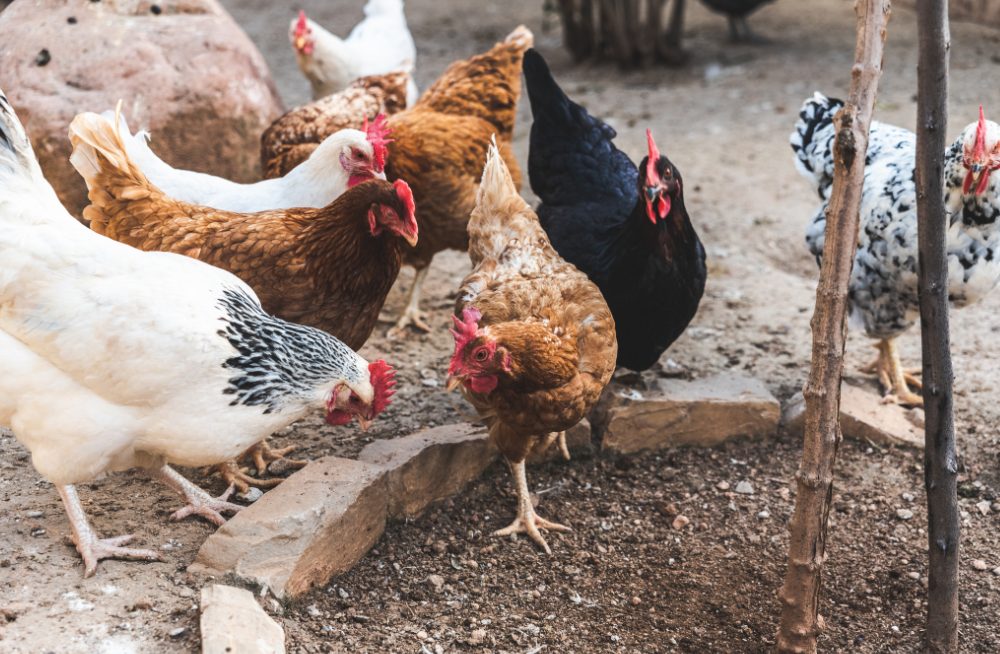

The San Bernardino County Department of Public Health (SBCDPH) has confirmed the first case of H5N1 bird flu in a domestic cat. The cat was one of three cats that consumed recalled raw milk from Raw Farm, LLC. Two of the cats have died, while the third was hospitalized, treated, and has recovered. These cats were not under the care of county services at the time of medical treatment. The owner of the cats did not test positive for H5N1 bird flu, and there are no reported human cases of bird flu in San Bernardino County. Additionally, no person-to-person spread of bird flu has been detected in California.
San Bernardino County Health Officer Dr. Sharon Wang stated, “While the risk of H5N1 bird flu to the general public remains low, this case, found in a cat, serves as a reminder of the importance of avoiding raw milk and ensuring safe practices when handling food and interacting with animals or their environments.”
Symptoms of H5N1 in Humans
Symptoms typically appear within two to eight days of exposure, but can be up to 10 days, and may include:
- Eye redness or discharge
- Cough or sore throat
- Runny or stuffy nose
- Diarrhea or vomiting
- Muscle or body aches
- Headaches
- Fatigue
- Difficulty breathing
- Fever
Preventive Measures for Residents and Pets
- Avoid consuming raw (unpasteurized) milk and undercooked meat. Raw milk can contain harmful germs that may cause serious illness, particularly in young children (under 5 years old), pregnant individuals and people with weakened immune systems.
- Choose pasteurized milk and dairy products, as the pasteurization process eliminates the bird flu virus.
- Individuals who interact with infected dairy cows, poultry or wildlife are at greater risk of infection.
- Wear protective clothing when working with birds, wildlife or livestock, or their environments.
- Refrain from working with sick animals or those exposed to avian influenza.
- Wash hands frequently after handling animals or being in their environment.
Raw Milk Recall
The California Department of Public Health (CDPH) has secured a voluntary recall of specific lots of raw milk from Raw Farm, LLC. Consumers are urged to return any remaining products to the store of purchase. Retailers have been notified to remove the affected products from their shelves.
For more details on bird flu, please visit the CDPH Current Bird Flu Situation webpage. For questions, contact the SBCDPH Communicable Disease Section at 800-722-4794, Monday-Friday, 8 a.m. – 5 p.m., or 800-472-2376, after-hours, including weekends and holidays.
Wastewater Surveillance Detects Avian Influenza Markers
Markers of H5 avian influenza have been detected in wastewater surveillance in the cities of Ontario and San Bernardino. While there is no immediate cause for concern, this detection highlights the importance of wastewater monitoring as an early warning tool. It enables public health officials to implement preventative measures and coordinate responses to potential threats to human and animal health.
Significance of Wastewater Surveillance
Wastewater analysis allows the detection of pathogens, including viruses like H5N1, COVID-19 and other types of influenza. It is a cost-effective, non-invasive method that provides a comprehensive snapshot of community health, capturing data from both symptomatic and asymptomatic individuals. This proactive approach helps guide public health responses and evaluate the effectiveness of interventions.
Markers of H5N1 have been detected in neighboring Riverside County and previously in San Bernardino County from different utilities. These findings do not indicate active human infections but serve as an early warning mechanism for public health preparedness.
Stay Healthy
As respiratory illnesses become more prevalent, residents are encouraged to:
- Stay up to date on vaccines for influenza, COVID-19 and RSV, particularly those at high risk and including pregnant individuals to help protect babies who are born too young to be vaccinated. While these vaccines will not protect against bird flu, getting vaccinated can lower the risk of being infected with multiple infections at the same time.
- Practice good hand hygiene.
- Wear masks in crowded or high-risk settings.
For more information on wastewater surveillance, visit the CDPH Wastewater Surveillance website. Contact the SBCDPH Communicable Disease Section for further questions at 800-722-4794 or via email at CDS@dph.sbcounty.gov.
Additional County Update News – Jan. 16, 2025
- Chairman Rowe and Chief Munsey advise residents on preparedness
- Board unanimously re-elects Rowe as Chairman and elects Baca, Jr. as Vice Chair
- Board Actions – Jan. 14
- Public hearing conducted on affordable housing and community development needs
- Volunteers needed for the upcoming homeless count
- H5N1 detected in cat after consuming recalled raw milk
- Veterans Affairs receives largest share of subvention funding in the state; veterans to receive COLA increase for 2025
- Victor Valley Museum opens new exhibit – Stolen Identities: River Routes to Freedom
- Telling Tails Reading Program! Where young readers and shelter animals connect
- County offices closed for the holiday
- San Bernardino County destinations – Running Springs
- Call for submissions: Share your favorite San Bernardino County destinations
- San Bernardino County history – Devore
- Things to do in San Bernardino County
- Pet of the Week
- Jobs of the Week